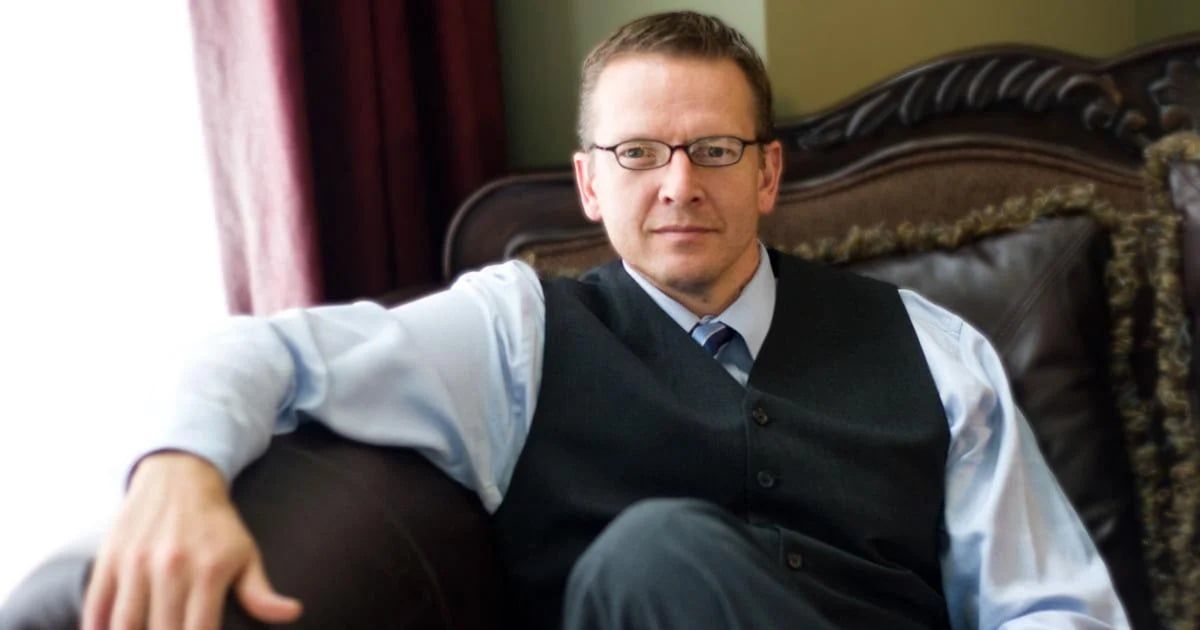As a clinical and systems psychologist, Shann Ray is well-versed in discussing the intricacies of romantic relationships. The 30-year Gonzaga University professor specializes in something called forgiveness studies: the idea that the act of forgiving can reap rewards for your well-being.
But Ray also knows true, mature love found in romantic relationships is extremely rare.
“We all suffer so much in love that it’s hard to believe that it actually exists,” Ray said.
However, Ray knows it does. And that’s why he wrote a book entirely devoted to it.
Through five novellas, “Where Blackbirds Fly” (released Oct. 1) dives deep into the lives of five couples and their commitment toward love, traversing generational trauma, genocide, infidelity, addiction, family patterns and psychological battles.
“I just wanted to get into our interior lives,” Ray said, “and notice that. Notice this desire for love and kind of follow people’s quest.”
Ray uses nature, often of the avian variety, to paint a landscape of feeling, where words may fall short. Ray centers his tales of restoration on the lives of Montana-born financial lender John Sender and his Puerto Rican partner Samantha Valeria Arrarás. The pair fight for love over the span of time and space, beginning and ending in the vast wilderness of Montana.
Inspired by the Beartooth Range and Yellowstone River near where Ray was raised, “Where Blackbirds Fly” depicts Montana’s high country, horseback riding, hunting and, as the title suggests, blackbirds. As a child, he often spotted red-winged blackbirds in flight and along the roadside.
“So that was an imprint, for sure, as a young person,” said Ray, who began spotting blackbirds multiple times a day in Spokane as he began researching for and writing the book.
“There is a great history of literary depth in Montana,” said the “American Copper” and “American Masculine” author, who found nature inspiration from Wallace Stegner, Jim Harrison, Tom McGuane, James Welch, Mildred Walker and Spokane Is Reading’s 2024 author Debra Magpie Earling, whom he calls a friend. “All of them do something unique and transcendent with wilderness as persona.”
The couples’ backgrounds and cultures are wildly diverse themselves, as are their religious beliefs. Many times, the couples’ commitment to one another falls short, but Ray offers them chances to come back together again and again.
“We all have a capacity for great failure and we also all have a capacity for great repair and restoration,” he said.
Beyond the novel’s touch on love and the wild, there are bad players at hand.
“As a psychologist, I’ve always also been fascinated with the full far end of the dark side of humanity, and I don’t ignore that, because I feel like that’s an expression of our humanity,” Ray said. “It’s sort of how the deepest part of the shadow of our humanity bites and kills. And since we hide our own shadow or ignore it or deny it, it rises up to harm us.”
The couples are faced with an antagonist and a cultural and political atmosphere not much different from our own: “The current atmosphere of money madness in America, media hatred, political sides in which it looks like it’s OK to completely try to dominate, yell at, degrade and even kill each other, are the wrong direction in life.”
But in the end, “no one’s free from harm,” Ray says. Yet he finds a way for his couples to find love through it all – even if it’s not a storybook ending.
“I want a work of art to point to love itself at the foundation of healing the age of enragement, the age of fracture, the age of fascism, which historically always cycles,” Ray said. “There will be healing from this age right now.”
How? Ray answers: “Radical revolutionary thought would say, sacrificial love is what changes the world.”
And Ray may know a thing or two, beyond his profession, about love and healing: Ray has been with his wife, Jenn, for 40 years. The pair raised daughters Natalya, Ariana and Isabella together, and he has written a book of poems devoted to her called “Sweetclover.”
Northwest Passages will host Ray in conversation with Spokesman-Review managing editor Lindsey Treffry at 7 p.m. Tuesday, Oct. 7, at the Bing Crosby Theater.

